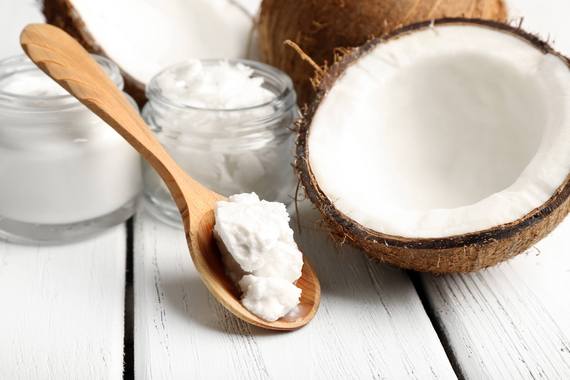Posted by Leigh Matthews (Credits to Natural Factors) on 2016 Jun 20th
4 Uses for Coconut Oil

Outrageous claims about the benefits of coconut oil abound on the internet, ranging from falsehoods about it being a cure for serious disease, to its ability to resurrect your dead dog (OK, so this was a tongue-in-cheek piece in a literary journal). There’s no doubt, though, that coconut oil does have some great health benefits, including the following four uses for this natural oil:
1. Emergency Sunblock
That’s right, coconut oil can be used as a natural sunblock, albeit one with a pretty low Sun Protection Factor (SPF). Research by Chanchal Deep Kaur and Swarnlata Saraf, carried out in 2010[1], found that coconut oil has an SPF of around 7, a little lower than olive oil, which has an SPF of around 7.5.
SPF is a measure of how effective a substance is at absorbing UV radiation that causes sunburn, meaning that, in a pinch, coconut oil can help protect the skin from burning for a brief amount of time (say, long enough to get to the store to buy a higher SPF sunscreen).
2. Natural Moisturizer
Coconut oil is an excellent natural moisturizer, helping to maintain good hydration in the skin by supporting its natural barrier properties. When used on the skin, coconut oil may have a mild cleansing effect.
It is also important to know that not all coconut oil is the same. Refined coconut oil is bleached, and deodorized using high heat, with sodium hydroxide often added as a preservative. Chemical solvents may also be used to extract the oil, and the oil may be partially hydrogenated, which creates unhealthy trans fats. When choosing coconut oil for use on the skin or in cooking, opt for unrefined coconut oil (often referred to as “virgin” or “pure” coconut oil) as this is processed without chemical solvents or high heat, leaving it free from unhealthy trans fats, and more likely to have retained its beneficial activity.
3. Personal Lubricant
Coconut oil has long been used as a natural personal lubricant, given its viscosity, and its edible nature. As many currently available lubricants have documented disadvantages, including actually increasing the risk of transmission of infection, it may be worth giving coconut oil a try in the bedroom.
Although there is a lack of research on this particular use of coconut oil, it does seem to deteriorate latex, so it is likely unsuitable for safe use with latex or polyurethane condoms or dental dams as it may compromise the barrier.
4. Cooking
Finally, the most obvious use of coconut oil is to cook with it! Personally, I like to simply melt a teaspoon of the oil and use it as a salad dressing for kale with a little salt, garlic and nutritional yeast.
Unlike flaxseed oil and other oils that consist of predominantly long-chain fatty acids, the medium-chain triglycerides in coconut oil mean that it has a fairly high smoke point, i.e. it can withstand a high amount of heat without oxidation. Coconut oil is also a source of vitamin E, a natural antioxidant, and it offers a ready source of energy, making it ideal for athletes and people wanting a boost in stamina.
As they provide ready energy, the medium-chain triglycerides in coconut oil are not thought to increase body fat. Instead, they may actually promote lean body mass by encouraging the production of ketone bodies that prompt the use of existing fat stores as energy.
Remember though, like all fats, coconut oil is still highly calorific. It contains around 120 calories per tablespoon, so be sure to exercise moderation when cooking with it!
Check out some of Noah's High Quality Coconut Oil Products.
References
[1] Deep Kaur C, & Saraf, S. (2010). In vitro sun protection factor determination of herbal oils used in cosmetics, Pharmacognosy Res, Jan-Feb; 2(1): 22–25.

